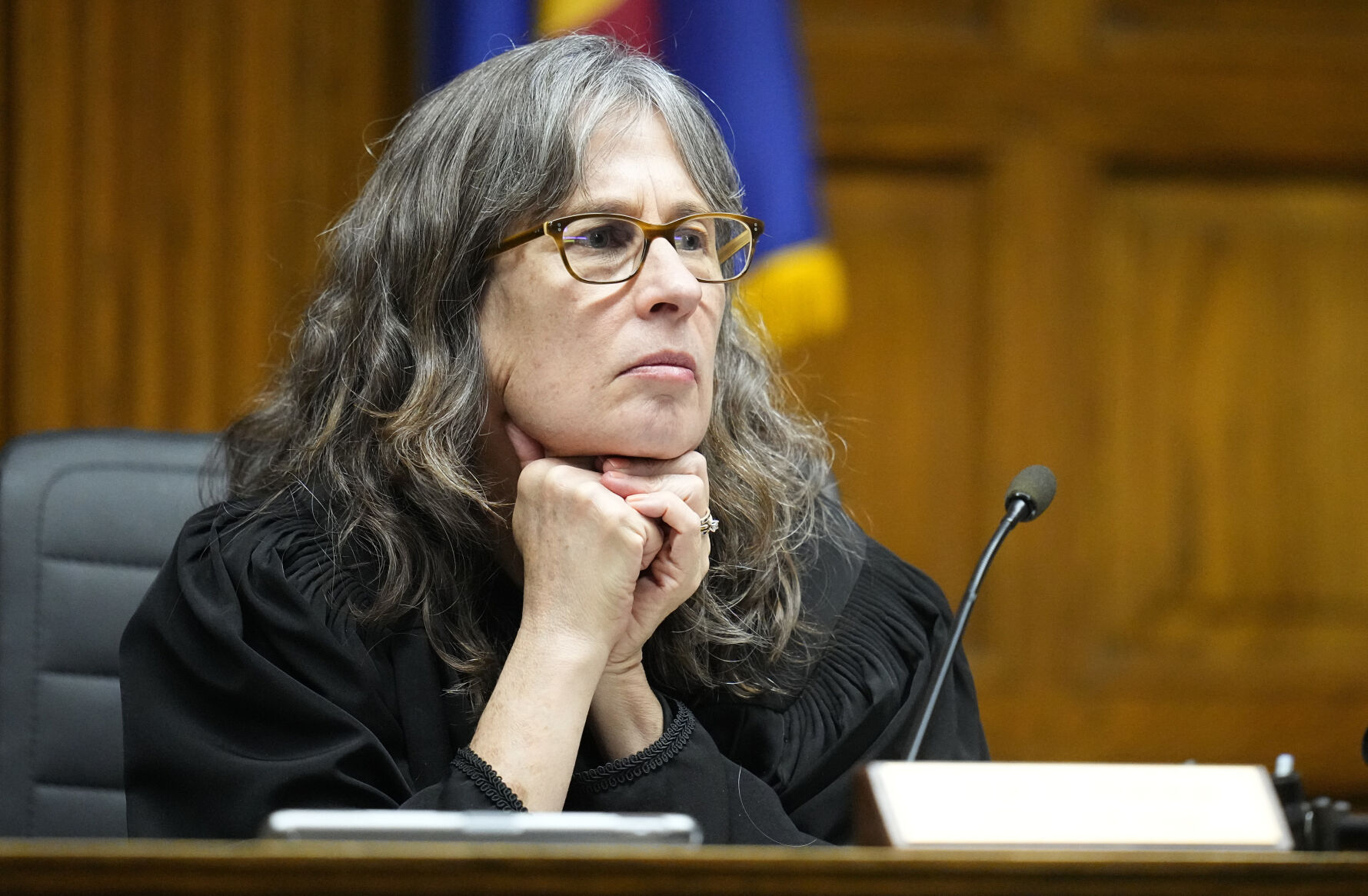Trump cleared for 2024 Colorado ballot, Denver judge rules after eligibility challenge

A Denver judge on Friday found Donald Trump remains eligible for the state’s 2024 presidential ballot even though he engaged in an insurrection, joining courts elsewhere that have rejected attempts to disqualify the leading Republican candidate.
District Court Judge Sarah B. Wallace determined the provision of the 14th Amendment barring insurrectionists from holding office does not apply to presidents and, therefore, does not disqualify Trump.
“To be clear, part of the Court’s decision is its reluctance to embrace an interpretation which would disqualify a presidential candidate without a clear, unmistakable indication that such is the intent,” she wrote in a Nov. 17 order.
Nonetheless, the 102-page order offered a damning critique of Trump’s conduct leading up to the Jan. 6, 2021 assault on the U.S. Capitol, and Wallace concluded Trump did, in fact, incite an insurrection to halt the certification of President Joe Biden’s victory.
“Trump cultivated a culture that embraced political violence through his consistent endorsement of the same,” she described. “He responded to growing threats of violence and intimidation in the lead-up to the certification by amplifying his false claims of election fraud. He convened a large crowd on the date of the certification in Washington, D.C., focused them on the certification process, told them their country was being stolen from them, called for strength and action, and directed them to the Capitol where the certification was about to take place.”
Four Republican and two unaffiliated voters filed a petition in September under the state law that permits courts to intervene if election officials are about to perform a wrongful act, like placing an ineligible candidate on the ballot. Section 3 of the 14th Amendment bars members of Congress or “an officer of the United Sates” from occupying state or federal office if they took an oath to the U.S. Constitution but subsequently “engaged in insurrection.”
The petitioners sought to use Section 3 to bar Secretary of State Jena Griswold from certifying Trump’s name on the presidential primary ballot on Jan. 5, 2024. Griswold took no position on Trump’s ineligibility, but she asked Wallace to squarely decide whether Trump’s alleged participation in an insurrection rendered him disqualified.
“The Court determined that Donald Trump is eligible to be placed on the Colorado ballot in the March Presidential Primary. This decision may be appealed. As Secretary of State, I will always ensure that every voter can make their voice heard in free and fair elections,” Griswold said in a statement.
During a five-day hearing earlier this month, Wallace heard from experts about how Section 3 was applied around the time of its 1868 enactment. At the time, members of Congress were not seated for acts as minimal as writing an anti-Union letter to the editor or giving a family member $100 before leaving to fight for the Confederacy.
Most recently, courts in New Mexico barred a local elected official from his position due to his involvement in the Jan. 6 attack.
The disqualification of a former president and current presidential candidate would have been unprecedented. Recent rulings in similar cases from New Hampshire, Minnesota and Michigan all went in Trump’s favor, with judges concluding it is not their role to resolve Trump’s current eligibility.
“We shouldn’t even be here,” said Trump’s attorney, Republican former Secretary of State Scott Gessler, at the outset of the Denver proceedings. “There are millions of people in Colorado and across this country who are inspired by President Trump. … Who are the petitioners to prevent those people from not being able to vote” for him?
Wallace went further in analyzing Trump’s eligibility than any other judge who has issued a decision. Her conclusion hinged on one factor: Her doubt that Trump was “an officer of the United States” as the framers of the 14th Amendment envisioned. Because that link in the chain was broken, Wallace could not order Trump disqualified.
The remainder of her decision contained large swaths rebutting Trump’s attempt to discredit the report of the congressional committee that investigated the Jan. 6 attack. The committee, composed of seven Democratic and two Republican members, found Trump bore responsibility for the insurrection. Trump’s lawyers maintained the committee members were biased toward that conclusion from the outset, and their report was not reliable.
Any “perceived animus of the committee members towards Trump did not taint the conclusions of the January 6th Report in such a way that would render them unreliable,” Wallace responded. “No evidence was presented at the (disqualification) hearing that the January 6th Committee or its staff coerced witness testimony, refused to hear testimony they did not want to hear, or disregarded credible exculpatory evidence.”
She also found multiple of Trump’s witnesses to not be credible, including Kashyap “Kash” Patel, an administration official who testified Trump authorized the presence of tens of thousands of National Guard troops in advance of Jan. 6. Tom Bjorklund, the treasurer of the Colorado Republican Party who was present at the Capitol, also testified to his belief that “antifa” – meaning “anti-fascist” – activists were actually involved in the insurrection.
That testimony demonstrated Bjorklund’s “inability to discern conspiracy theory from reality,” Wallace added.
The petitioners will need to appeal to the Colorado Supreme Court by next week in order to challenge Wallace’s ruling. The court has the discretion to decline the case.
Citizens for Responsibility and Ethics in Washington, an advocacy group that assisted with the petitioners’ case, said it would file an appeal.
“The court’s decision affirms what our clients alleged in this lawsuit: that Donald Trump engaged in insurrection based on his role in January 6th,” said Noah Bookbinder, the group’s president. “Today was not the end of this effort, but another step along the way.”
The victory for Trump in Colorado comes as he faces a slew of legal proceedings in other cases, including multiple criminal indictments and a civil fraud trial in New York. Polls show he remains the leading candidate for the Republican nomination.
The case is Anderson et al. v. Griswold.

luige.delpuerto@coloradopolitics.com













